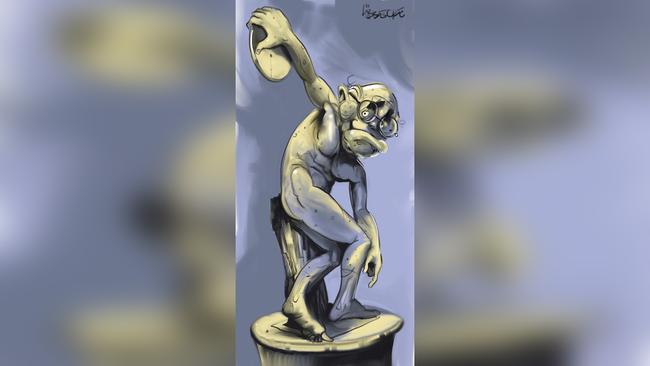John Howard’ speeches convey the power of words

The positive contribution of Western civilisation has been a constant theme in John Howard’s speeches during the course of his public life. “Despite what any self-appointed cultural dietitians tell you, Australia is part of Western civilisation,” says Howard. In an address to the national conference of the Ethnic Communities Council in 1998, he talked about Australia as a “projection of Western civilisation in this part of the world”, pointing to our “rich, democratic, political inheritance” from Britain and Europe. He did so not to diminish Australia’s cultural diversity, which he saw as a source of strength, but rather to underline the common values that unite us, regardless of where we come from.
Howard’s concern for freedom and democracy did not end at the country’s border. In 2006, he told Quadrant’s 50th anniversary dinner that the “very ideals that some people wistfully dreamt were unchallengeable after the Cold War” were now subject to a “generational struggle”. He pointed to “the tyranny of Islamist terrorism” threatening free and open societies, and his time in office would be marked by the tragedies of September 11 and the 2002 Bali bombing, and the deployment of Australian forces to Iraq.
In the same speech, he also pointed to the “long march” of the “soft left” through our institutions, noting their “dominance in Australia’s universities”. A prescient observation in the light of the Australian National University’s recent response to proposals from the Ramsay Centre for Western Civilisation.
These two addresses are part of a new compilation of Howard’s finest speeches, edited by David Furse-Roberts and titled Howard: The Art of Persuasion. It was said of Winston Churchill that during World War II he mobilised the English language and sent it into battle; the same could be said of Howard. Courage, conviction and a consistency of purpose shine through these pages as Australia’s 25th prime minister deployed the spoken word to win the battle of ideas.
Howard’s speeches, often delivered extempore, were essential to his political success. He said after he left office that “those who triumph politically are those who have not only superior arguments but also the capacity to present those arguments in a compelling fashion”. He possessed a clear, logical intellectual framework. Not everyone agreed with him but they knew where he stood. He had a deep understanding of the Liberal Party’s values, beliefs and history. He would articulate in his headland speeches and affirm early on in his prime ministership the importance of individual freedom, personal choice, the family unit, competition and open markets. These priorities would guide Howard and his ministers for their four terms in office.
Like Robert Menzies, Howard understood modern liberalism should be seen not as “a fixed ideology but as a political philosophy with values that need to be related to the great issues of the day and of the future”.
Howard knew that political success lay in focusing on “national interests rather than sectional interests” while building a “broad-based political philosophy” — a philosophy that fused the classical liberal and conservative traditions of John Stuart Mill and Edmund Burke, empowering Howard to appeal to the “mainstream” while giving voice to his instincts as a self-described social conservative and economic liberal.
The times would suit Howard. As he noted in his Menzies lecture just months after assuming office: “A new constituency has galvanised around new issues and in support of Liberal priorities. It includes many of the ‘battlers’ and families struggling hard to get ahead. It includes Australians young and old who want Australia to break free of the legacy of debt and deficits. It includes small business people who want to expand, invest and employ more Australians. It includes all those who do not want their national government to respond to the loudest clamour of the noisiest minority.” These were Howard’s “forgotten people” and it was from this statement that his political purpose was born.
With his clear sense of conviction, Howard would clash with so-called progressives over the apology, the republic and the rising tide of identity politics. But always comfortable with who he was and never seeking to be someone he wasn’t, Howard never shirked from these debates or conceded ground. Even after leaving politics he has continued to be outspoken, raising concerns in his speeches about a host of issues including Bill Leak’s treatment by the Australian Human Rights Commission, the attempt to rewrite history in the national curriculum and the reluctance of our universities to embrace the teaching of Western civilisation.
In the many speeches chronicled in this new book, the historic achievements of the Howard government are there for all to see. Tax, industrial relations and welfare reform, coupled with an extensive privatisation and free trade agenda, created the lowest unemployment in more than 30 years. Stronger ties with Indonesia, Japan, China and the US also characterised Howard’s time in office. In the end, Howard — as he noted in his observation about Margaret Thatcher — got the big things right. And the breadth and depth of his spoken word were fundamental to his political success.
Federal Environment and Energy Minister Josh Frydenberg is a former senior adviser to John Howard. He launched Howard: The Art of Persuasion in Melbourne last night.


